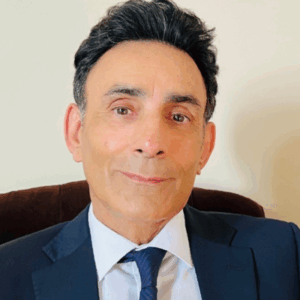

Paducah, Kentucky, drug and alcohol rehab isn’t just another service listing—it’s a direct response to a community that deserves comprehensive, science-backed help. Louisville Addiction Center makes the two-hour drive worth every mile by mapping out a full continuum of care that meets you where you are and adapts as you heal.
We begin with trusted detox referrals that provide 24/7 medical supervision for safe withdrawal. After stabilization, many clients step into our Partial Hospitalization Program (PHP) for five to six hours of daily therapy and medication management.
As symptoms ease and coping skills grow, you can taper to the Intensive Outpatient Program (IOP), which offers three-hour sessions three to five times per week—perfect for balancing work, school, or caregiving.
Finally, the Outpatient Program (OP) provides one to three hours of weekly support focused on relapse prevention and community reintegration. Throughout every stage, dual diagnosis services treat co-occurring anxiety, depression, PTSD, or bipolar disorder, ensuring that mind and body recover in tandem.
If you’re looking for addiction treatment in Paducah, KY, that evolves with your progress and never leaves mental health behind, this integrated model delivers a clear, sustainable path forward.
Fentanyl has hit Western Kentucky hard. In just a year, overdose deaths in McCracken County jumped about 15 percent, and the headlines don’t even cover the daily scares that never make the news.
Alcohol is still the most common culprit—it fills ER beds with liver trouble and accident injuries night after night. Meanwhile, meth busts keep rising, and the drug is often mixed with whatever else people can find, making detox even riskier.
Those figures aren’t abstract stats; they’re the empty desk at work, the hospital bill you didn’t plan for, the family dinner where one chair keeps going vacant. Jumping into addiction treatment in Paducah, KY—complete with medical detox, proven therapy, and a solid relapse prevention plan—can stop that domino effect before it flattens everything.
Getting help early steadies your health, slashes those ER visits, and puts you back on the job or in class sooner. It also hands your family a practical game plan so they know how to help instead of just worrying. Bottom line: quick, professional care turns a widening community crisis into personal comeback stories full of stability, purpose, and hope.
Not every center delivers the same caliber of care, so it pays to vet any Paducah, KY addiction treatment clinic thoroughly.
Look first for national or state accreditation, which confirms that safety protocols, clinical staffing, and infection-control standards meet rigorous benchmarks. Next, verify that core therapies are evidence-based—think Cognitive Behavioral Therapy (CBT), Dialectical Behavior Therapy (DBT), trauma-informed modalities, and Medication-Assisted Treatment (MAT).
A worthwhile clinic should also offer a full spectrum of levels—detox partnerships, PHP, IOP, and OP—so you can step down gradually without switching providers. Integrated dual diagnosis services are a must, ensuring depression, anxiety, PTSD, or bipolar disorder receive equal attention alongside substance use.
Finally, strong community ties matter: ask about local AA, NA, and Celebrate Recovery partnerships; employment-readiness resources; and alumni networks that keep support alive after discharge.
Clinics that meet these criteria don’t just treat symptoms—they anchor clients in a support system that remains long after the final session, transforming short-term care into lifelong recovery.
At our addiction treatment center near Paducah, recovery unfolds along a carefully sequenced continuum rather than a one-size-fits-all track. Each level delivers the right balance of structure and independence for a specific stage of healing, allowing clients to progress only when clinical milestones—not a calendar—confirm they’re ready.
The journey starts with medically monitored detox, advances to the intensive structure of PHP, eases into the balanced schedule of IOP, and finishes with the flexible support of OP.
Because all programs share one multidisciplinary team and a single electronic health record, goals, medications, and progress notes move with you, eliminating the information gaps that often derail momentum.
Severe withdrawal demands 24/7 monitoring by physicians and nurses who can manage vitals, hydration, and medications for comfort and safety. Once symptoms stabilize, our staff arranges a seamless hand-off to PHP, ensuring therapeutic work begins immediately and the gains of detox aren’t lost in transition.

Detox is the medically managed clearing of drugs or alcohol from your body; rehab is the longer-term counseling and skill-building that follows. During detox, the brain and nervous system rebound after months or years of chemical suppression, and that rebound can be dangerous.

When cravings keep overruling your best intentions, sheer willpower rarely carries you to the finish line. That’s why drug treatment in Louisville at Louisville Addiction Center pairs accredited clinicians with evidence-based therapies, turning the turmoil of active use into a clear, step-by-step path to lasting sobriety.

Our partial hospitalization program (PHP) is the most common level of care that we have to offer. Our PHP program for substance abuse treatment in Louisville, KY offers intensive care as well as a flexible schedule that will allow our clients to remain plugged into normal life. During our PHP in Louisville, Kentucky, our clients are in our program for 30 days.

Following PHP, clients might need to continue treatment while getting back to everyday life. Our intensive outpatient program (IOP) offers treatment for several hours throughout the week, yet with more flexibility than PHP. That way, clients can begin to use the skills they learn while tending to other obligations, like family, school, or work.

The outpatient program during Louisville rehab is the least restrictive program we offer. Often, clients meet with a therapist or group for about one hour per week. Most clients in our outpatient program have the skills needed to stay healthy outside of treatment. Yet, they still need to refine their recovery skills in the real world with professional support and guidance.

At Louisville Addiction Center, we offer rehab for veterans in Louisville, Kentucky. As a veterans addiction treatment center, we provide TRICARE addiction treatment for veterans. Veterans have unique needs when it comes to substance abuse and mental health disorders. We understand that and offer specialized treatment.

Any reputable Paducah drug rehab relies on interventions that have stood up to clinical scrutiny.
Cognitive Behavioral Therapy (CBT) helps clients spot distorted thoughts—“I can’t cope without a drink”—and replace them with realistic beliefs that support sobriety. Dialectical Behavior Therapy (DBT) adds emotion-regulation and distress-tolerance skills, giving people the tools to ride out cravings instead of reacting to them.
For those carrying unresolved trauma, our clinicians employ a trauma-informed care framework that processes painful memories without re-triggering the nervous system.
Think of cravings like a smoke alarm that won’t shut off. Medication-Assisted Treatment (MAT) turns down the volume—buprenorphine or naltrexone for opioids, acamprosate or a once-a-month naltrexone shot for alcohol—while regular counseling keeps you focused and motivated.
On the calmer side of things, mindfulness sessions and easy yoga flows help lower stress hormones and improve sleep, giving your nervous system a break. Family therapy tackles the home front, smoothing out communication and showing loved ones how to support—not sabotage—your progress.
By blending brain chemistry fixes, emotional skills, body-based calmers, and healthier relationships into one plan, we build a safety net sturdy enough to hold long-term recovery.
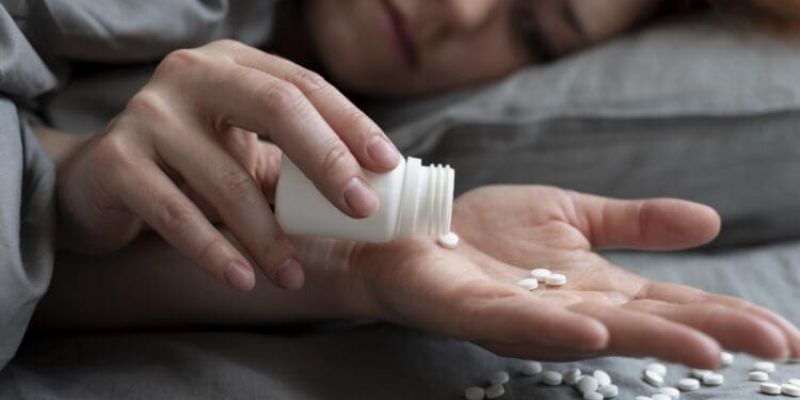
Substance misuse rarely exists in isolation; many clients also battle anxiety, depression, PTSD, or bipolar disorder. Ignoring those conditions invites relapse—panic spikes cravings, depressive lows sap motivation, traumatic flashbacks derail focus, and manic highs fuel risky behaviors.
Our dual diagnosis model begins with a psychiatric evaluation to confirm diagnoses and prescribe evidence-based medications—SSRIs for depression, mood stabilizers for bipolar disorder, or prazosin for trauma-related nightmares.
Therapists then integrate those medications into CBT, DBT, and trauma-informed sessions so chemical balance and coping skills improve in tandem. Weekly multidisciplinary reviews align therapy goals with medication responses, ensuring no gaps where symptoms can sneak through. Clients report steadier moods, sharper concentration, and fewer intrusive memories—all factors that reduce the risk of returning to alcohol or drugs.
When the same team tackles your anxiety or depression right alongside the drinking or pills, recovery stops being a brief timeout. It turns into a real way of life—one where you can revive your career, repair relationships, and feel good about yourself for the long haul.
Long-term recovery blossoms when professional treatment is reinforced by local support. Paducah hosts daily Alcoholics Anonymous (AA) and Narcotics Anonymous (NA) meetings, plus faith-based Celebrate Recovery groups for those seeking a spiritual lens.
Loved ones can find guidance at Al-Anon, which teaches healthy boundaries and communication skills. The 988 Suicide & Crisis Lifeline and regional hotlines provide 24/7 crisis help, while sober-living homes offer structured housing for early independence.
Louisville Addiction Center also plugs graduates into an active alumni network that meets monthly for peer mentorship, social events, and job-readiness workshops with local employers.
This layered safety net—community meetings, crisis lines, stable housing, and employment support—turns the gains made in formal treatment into a sustainable, life-long recovery journey.
Fortunately, Paducah is home to several valuable resources for those dealing with substance use disorder. These Paducah, Kentucky drug and alcohol rehab resources range from prevention and harm reduction to emergency response and long-term recovery support. Below are some key ways the Paducah area and the state of Kentucky offer help:
Support groups are an integral part of long-term recovery, offering a safe space for individuals to share experiences, gain encouragement, and learn from others. In Paducah, several group meetings are available:
We understand how difficult it can be to seek help for addiction, but it’s important to know that you’re not alone. Louisville Addiction Center is here to support you and your family every step of the way. Our compassionate team is ready to help you heal from the pain of addiction and any co-occurring mental health conditions. If you’re ready to begin your recovery journey, don’t wait—reach out today. We’re here to listen, guide, and walk with you as you take that important first step. Contact us now and start your path to recovery.
Some key local resources include:
Harm reduction and syringe exchange programs in McCracken County, and access to naloxone (“Narcan”) for overdose reversal.
The Kentucky Crisis Line (988) and statewide helplines for immediate support.
Regional prevention centers (e.g. Four Rivers Behavioral Health Regional Prevention Center) that partner with schools, law enforcement, and non-profits to raise awareness and deliver preventive services.
Drug courts in Paducah that offer alternatives to incarceration, integrating treatment and supervision for those involved with the legal system.
Support groups such as Alcoholics Anonymous (AA), Narcotics Anonymous (NA), Celebrate Recovery, Al-Anon, and other peer recovery networks.
Yes. Louisville Addiction Center offers dual diagnosis care, which means they address both substance use disorders and co-occurring mental health issues (e.g., depression, anxiety, trauma) in an integrated manner.
In addition to core therapy, they provide: individual counseling; group therapy; family therapy; holistic therapies including wellness, meditation, or mindfulness; 12-step/life skills programming; and medication-assisted treatment (MAT) for appropriate cases.
To begin, you can contact Louisville Addiction Center via their admissions hotline: 502-586-4554. They offer a free, confidential Verification of Benefits so you can understand what your insurance may cover (for detox, rehab, etc.). Then, they’ll help you find the right program level (PHP, IOP, OP, etc.) based on your personal situation
Yes. Louisville Addiction Center provides insurance benefit verification to help determine coverage. This includes coverage for programs like detox, rehab, MAT services, and therapy components.
Get Family Support Now
We understand addiction affects the whole family. Our comprehensive family program helps rebuild trust and restore relationships.
Weekly Family Therapy Sessions
Educational Workshops
Support Groups
Communication Skills Training
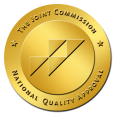

Centers for Disease Control and Prevention. (2025, June 9). Heroin. Overdose Prevention. U.S. Department of Health & Human Services. Retrieved August 22, 2025, from https://www.cdc.gov/overdose-prevention/about/heroin.html
Centers for Disease Control and Prevention. (2025). Understanding the opioid overdose epidemic. Overdose Prevention. U.S. Department of Health & Human Services. Retrieved August 22, 2025, from https://www.cdc.gov/overdose-prevention/about/understanding-the-opioid-overdose-epidemic.html
Centers for Disease Control and Prevention, National Center for Health Statistics. (2025, March 17). FastStats – Drug overdoses. Retrieved August 22, 2025, from https://www.cdc.gov/nchs/fastats/drug-overdoses.htm
Kentucky Office of Drug Control Policy & Kentucky Injury Prevention and Research Center. (2025). 2024 Kentucky drug overdose fatality report. Commonwealth of Kentucky. Retrieved August 22, 2025, from https://odcp.ky.gov/Reports/2024%20Drug%20Overdose%20Fatality%20Report.pdf
Centers for Disease Control and Prevention. (2025, August 7). SUDORS dashboard: Fatal drug overdose data. U.S. Department of Health & Human Services. Retrieved August 22, 2025, from https://www.cdc.gov/overdose-prevention/data-research/facts-stats/sudors-dashboard-fatal-overdose-data.html
Kentucky Justice & Public Safety Cabinet. (2023). Gov. Beshear: Overdose deaths decline for second-straight year. Commonwealth of Kentucky. Retrieved August 22, 2025, from https://justice.ky.gov/News/Pages/24overdosefatalityreport.aspx

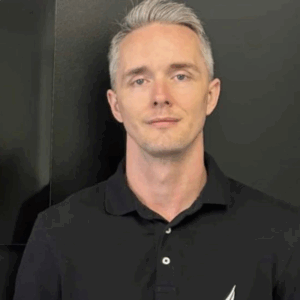

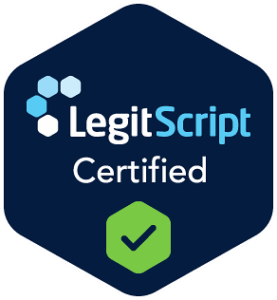
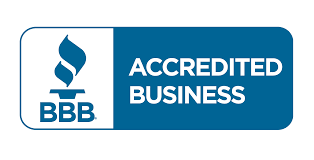




Centers for Disease Control and Prevention. (2025, June 9). Heroin. Overdose Prevention. U.S. Department of Health & Human Services. Retrieved August 22, 2025, from https://www.cdc.gov/overdose-prevention/about/heroin.html
Centers for Disease Control and Prevention. (2025). Understanding the opioid overdose epidemic. Overdose Prevention. U.S. Department of Health & Human Services. Retrieved August 22, 2025, from https://www.cdc.gov/overdose-prevention/about/understanding-the-opioid-overdose-epidemic.html
Centers for Disease Control and Prevention, National Center for Health Statistics. (2025, March 17). FastStats – Drug overdoses. Retrieved August 22, 2025, from https://www.cdc.gov/nchs/fastats/drug-overdoses.htm
Kentucky Office of Drug Control Policy & Kentucky Injury Prevention and Research Center. (2025). 2024 Kentucky drug overdose fatality report. Commonwealth of Kentucky. Retrieved August 22, 2025, from https://odcp.ky.gov/Reports/2024%20Drug%20Overdose%20Fatality%20Report.pdf
Centers for Disease Control and Prevention. (2025, August 7). SUDORS dashboard: Fatal drug overdose data. U.S. Department of Health & Human Services. Retrieved August 22, 2025, from https://www.cdc.gov/overdose-prevention/data-research/facts-stats/sudors-dashboard-fatal-overdose-data.html
Kentucky Justice & Public Safety Cabinet. (2023). Gov. Beshear: Overdose deaths decline for second-straight year. Commonwealth of Kentucky. Retrieved August 22, 2025, from https://justice.ky.gov/News/Pages/24overdosefatalityreport.aspx









Hear directly from those who have walked the path to recovery. Our patients’ stories highlight the compassionate care, effective programs, and life-changing support they’ve experienced. Let their journeys inspire you as you take your first steps toward healing.
Louisville Addiction Center is helping people in Kentucky overcome addiction and mental health challenges.

















